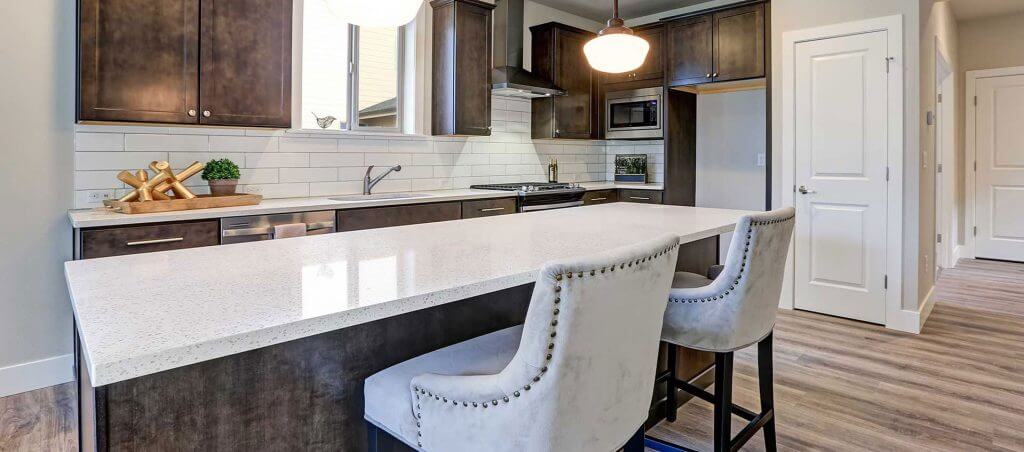Quartz and Granite are the most popular and luxurious countertop options. but quartz vs granite, which is better? Granite countertops have been the darling of many homeowners and interior designs. Quartz, on the other hand, has proven to be a popular alternative for granite.
But, how do these two countertop materials compare to each other? What sets them apart?
Below are features to help you choose between Quartz v Granite countertops for your home.
Attractiveness and Style
There is no doubt that quartz and granite countertops are best. Nevertheless, there are underlying features that make them different and unique. Granite countertops are made from natural stone and this is what makes them the perfect option if you are looking for natural colors and durability.
Quartz countertops are engineered surfaces made from natural quartz and polyresin. Nonetheless, the countertops made from Quartz are incredibly attractive and come in different color variations and patterns. Since it is engineered the color combinations fit well with any style.
Care and Maintenance
Granite countertops in all their glory have one major downfall. They are porous since the granite is extracted from a natural rock. Due to this, granite countertops need to be resealed whenever they crack or chip to retain is aesthetics. On the good side, they are heat, stain, and scratch-resistant meaning they have a low maintenance cost and are long-lasting.
As for Quartz countertops, they are nonporous due to them being engineered a key factor that separates them from Granite countertops. Nonetheless, they are susceptible to excessive heat. So, if you decide to install it, avoid putting on the hot pots and hot metallic items as the resin will melt and damage the surface extensively.
Where to Place the Countertop
Quartz and granite differ when it comes to how they are affected by natural light. Granite countertops are not affected by natural light hence cannot fade unless it has been coated with resin. As for quartz countertops, they are affected by natural UV light and will fade over time mainly due to the degradation of the resin.
So, how do work your way around this problem? Place your quartz countertops in areas where they have no direct exposure to the UV sunlight. If it is not possible, you can install windows with the UV blocking capabilities to protect it.
Overall, this distinguishing feature makes quartz unsuitable for outdoor settings, unlike granite which can withstand the UV rays.
Installation Area and Seaming
Both granite and quartz countertops require a professional to install them. Still, they differ when it comes to the size of the area they are being installed on. Quartz countertop slabs have a standard size of no more than 65 inches making them inappropriate for large countertops area.
On the other hand, Granite countertop slabs are easy to work with on a large area as some can measure up to 70 Inches wide hence no need for seaming. If seaming is necessary, then a quartz countertop is the best option. With dark or solid color and a qualified professional, the seam will not be obvious.
It is important to note that granite countertops are not suitable where seaming is required.
